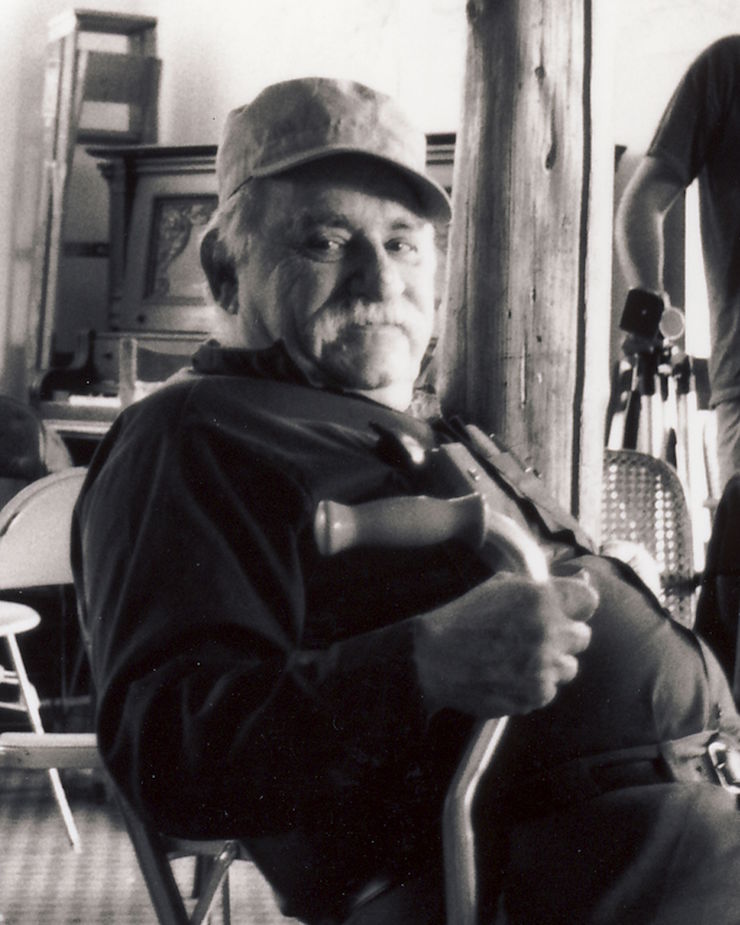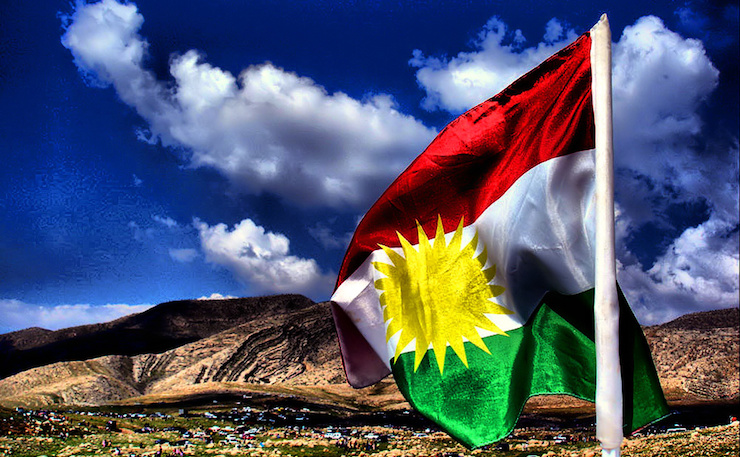The crisis in the country is forging strange alliances. With a number of groups classified by Australia as terrorist networks now fighting against Islamic State, even calculating what self-interest looks like is becoming next to impossible, writes Jeff Sparrow.
It’s vanishingly rare to encounter a good news story out of Syria these days but here’s one.
In Rojava, in the northern part of the country, Kurds have established a secular, feminist autonomous zone, guided by the libertarian philosophies of the American anarchist-ecologist Murray Bookchin. As the New York Times explains, with understandable wonderment, “Rojavan women ha[ve]been championed as leaders, defense of the environment enshrined in law and radical direct democracy enacted in the streets.”
Now, the top-down process through which anarchism came to Rojava seems quite odd (in essence, imprisoned Kurdish leader Abdullah Ocalan stumbled upon Bookchin’s writings and directed his followers to embrace them). Nevertheless, you could scarcely imagine a project more antithetical to Islamic State’s grim theocracy than a society guided by The Ecology of Freedom (Bookchin’s most famous work).
Islamic State is, of course, seeking to exterminate the Kurds – but, as Jonathan Steele explains in the New York Review of Books, the female fighters of Rojava’s Women’s Protection Units have inflicted several defeats on the jihadis, effectively driving IS out of their area. That’s why, in Slate, Michelle Goldberg asks why progressives aren’t doing more to highlight the Rojavan cause.
But here’s the catch: any Australian who assists the feminist fighters of Rojava risks two decades in prison. For Abdullah Ocalan, the Kurds’ Bookchin-quoting chief, is the founder of the Kurdistan Workers Party or PKK, a group listed on the Australian government’s register of terrorist organisations. That means, as Fairfax noted when the PKK was first banned, “a person found to have links with the party or 16 related entities faces a jail term of up to 25 years.”

In Australia, the debate spurred by the Paris atrocities has centred on precisely what military action should be taken in Syria. But Rojava illustrates the difficulty both with the slogan ‘bomb the terrorists’ and its more macho variant, ‘send troops to kill the terrorists’.
For two obvious questions follow: which terrorists, and what happens next?
Consider a major blow recently inflicted upon the Islamic State in southern Syria where the head of the Yarmouk Martyrs Brigade was killed along with six of his top lieutenants. Had the assassinations been the result of a Western air strike they would have been trumpeted as a great success. But, actually, they were the handiwork of a suicide bomber affiliated with al Qaeda.
Yes, the Islamic State is now at war with both al Qaeda and the Taliban.
The conflict between the groups even spurred the former CIA director David Petraeus to float, back in August, the notion of America backing al Qaeda’s Nusra Front against Islamic State in Syria, a plan reminiscent of the CIA’s previous enthusiasm for a young bin Laden’s fight against the Soviet Union – which, of course, eventually culminated in the 9/11 atrocities.
The possibility that the outfit responsible for the New York attacks might become a western ally illustrates what’s happening in Syria, which is now a proxy war of byzantine complexity, fought out over the bodies of ordinary Syrians.
The Syrian Civil War originally began as a people’s rebellion against the Assad dictatorship, one of the most brutal regimes in the region. Even today, Assad’s responsible for the vast majority of civilian casualties in the war: the murders carried out by Islamic State don’t compare with the slaughter inflicted by a Syrian government deploying chemical weapons and indiscriminate barrel bombs.
When the dictator mowed down the peaceful protesters of the Arab Spring, anti-Assad demonstrators took up arms as the Free Syrian Army, and the revolution became a war. The emergence of Islamic State out of the carnage in Iraq offered Assad a lifeline. Thereafter he portrayed himself as a secular alternative to the jihadis fighting him, many of whom are now backed by Saudi Arabia and other Gulf states.
But the claim was always farcical: Assad’s strongest support comes from the theocracy in Iran and its allies in Hezbollah.
Indeed, though both deny it, a strange codependency has developed between Assad and IS. Because Assad’s best chance for survival comes from convincing the West that he’s a useful buttress against the Islamic State, his armies targets other rebel factions far more than they do the IS forces. Likewise, though the Islamic State recruits young people from around the world by publicising Assad’s atrocities, in practice it specialises not in confronting the Syrian government but in murdering religious minorities and rival anti-Assad groups.
The tension between Russia and Turkey over the shootdown of a Russian jet illustrates the extent to which foreign powers now have their fingers in the conflict. In theory, Ankara and Moscow are both fighting Islamic State; in reality, they’re pursuing their own interests.
As a NATO member, Turkey is allied, at least on paper, with the US, the leader of the anti-IS campaign. Yet Ankara’s main energy goes into suppressing the Kurds (whose independence it sees as an existential threat). As the New York Times notes, “since August 2014, Turkey has bombed Kurdish fighters in Iraq and Syria 300 times, and ISIS targets only three.” Those attacks are taking place even as US Special Forces work with Kurdish groups.
Meanwhile, Vladimir Putin claims the West’s not contributing enough in the struggle against Islamic State. But for Putin, fighting IS means propping up the Assad regime, a longstanding Russian ally. The Russian intervention’s directed at all the anti-Assad fighters, not just those connected with Islamic State. So Putin’s targets include the Turkmen ethnic minority, who are backed by Turkey in their fight against Assad and the Kurds.
That’s why the Turkish military shot down the Russian plane – and why Turkmen forces (supposedly) killed one of the pilots after he ejected. Some reports say another airman was rescued by Hezbollah commandoes under the leadership of an Iranian general – a further illustration of the disparate forces drawn into the war.
In this context, what do Western air strikes actually mean? Who will be the beneficiary and what will happen next?
It’s not enough simply to oppose IS. All the players in the Syrian conflict – even al Qaeda – claim to oppose IS. But without a resolution of the other fundamental issues, the war will roll on in some form or another – and who knows what else will emerge from it? Do the Syrian people have the right to live free from a dictatorship? Can the Kurds in Rojava and elsewhere exercise their independence? Who’s even asking these questions in Australia?
It’s not just a question of fundamental justice, either.
In the late twentieth century, proxy wars were generally constrained by the logic of the stand off between the two superpowers, with the various factions either aligning themselves with Washington or Moscow. But we’re now in a different and more unstable situation, as a multiplicity of nations jockey for position. Indeed, if you were looking for a historical analogy with the complex violence playing out in Syria and Iraq, the Balkan Wars of the early twentieth century come to mind.
Suffice to say, they did not end well.
Donate To New Matilda
New Matilda is a small, independent media outlet. We survive through reader contributions, and never losing a lawsuit. If you got something from this article, giving something back helps us to continue speaking truth to power. Every little bit counts.





